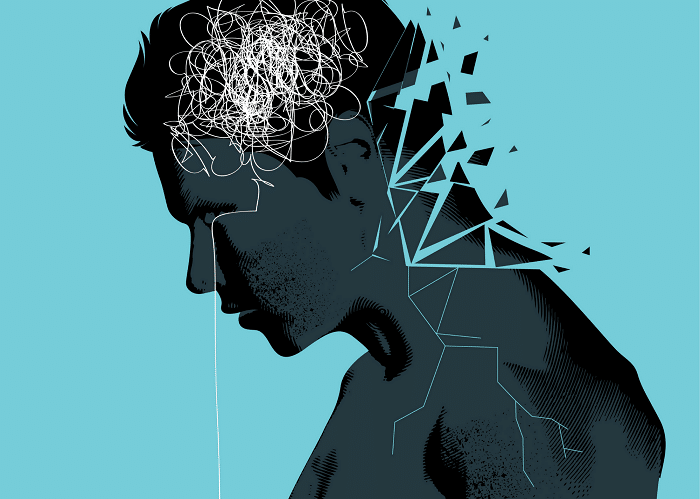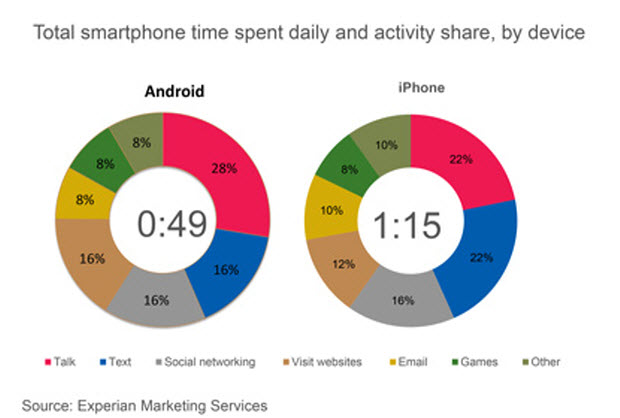Mental Health, Violence, And The Media: Deconstructing The "Monster" Narrative

Table of Contents
The Media's Role in Shaping Public Perception of Mental Illness
Overrepresentation of Violence in Media Portrayals
Media frequently depicts individuals with mental illness as violent, unstable, and unpredictable. This is a gross oversimplification of a complex issue.
- Examples: Numerous films and television shows showcase characters with mental illness committing acts of violence, often without exploring the nuances of their conditions or the complexities of their experiences. Think of the villainous portrayal of mental illness in various horror films or thrillers. Even seemingly sympathetic characters with mental health issues are sometimes shown exhibiting violent tendencies as a defining trait.
The frequency and intensity of violence associated with mental illness in the media far exceed the reality. This constant reinforcement of the "violent mentally ill person" stereotype contributes significantly to negative media coverage and stigmatizing perceptions.
The Absence of Nuance and Complexity
Media portrayals often lack the nuance and complexity inherent in mental health experiences. This simplification leads to inaccurate and harmful generalizations.
- Examples: The media rarely depicts the wide range of mental health conditions, their diverse presentations, or the varied responses to treatment. The rich tapestry of lived experiences within the mental health community is often reduced to a single, simplistic, and frequently negative narrative.
This lack of representation contributes to stigmatizing media depictions, reinforcing inaccurate beliefs and perpetuating the idea that all individuals with mental illness are inherently dangerous. It fosters a lack of understanding and empathy, hindering efforts to promote mental health awareness and reduce the stigma surrounding mental illness.
The Impact of Sensationalism
Sensationalist reporting often focuses on instances of violence committed by individuals with mental illness, neglecting other crucial contributing factors. This approach further reinforces negative stereotypes and fuels fear and prejudice.
- Examples: News headlines frequently highlight cases where someone with a diagnosed mental illness commits a violent act, disproportionately emphasizing the mental health aspect while neglecting socioeconomic factors, substance abuse, or past trauma which may have played a larger role.
Sensationalist media practices, while aiming for higher viewership, contribute to inaccurate and harmful narratives, making it crucial for responsible reporting and ethical journalism to be prioritized. Improved media literacy and better mental health awareness campaigns can counteract these harmful effects.
The Correlation (Not Causation) Between Mental Illness and Violence
Understanding the Statistical Reality
It's crucial to understand the statistical reality: individuals with mental illness are far less likely to commit violence than the general population.
- Statistics: Studies consistently show that the overwhelming majority of individuals with mental illnesses are not violent. For example, [cite reputable source, e.g., National Institute of Mental Health statistic]. Focusing solely on the rare instances of violence committed by individuals with mental illness grossly misrepresents the reality.
Mental illness is not a predictor of violence; numerous other factors contribute to violent behavior. It is vital to understand this distinction and avoid perpetuating harmful correlations.
The Influence of Untreated Mental Illness
While untreated mental health conditions can sometimes contribute to risky behaviors, this is not the norm. Untreated conditions can exacerbate existing challenges, but it's crucial to emphasize this is not a defining characteristic of mental illness.
- Examples: Severe untreated psychosis, for instance, might increase the risk of impulsive actions. However, appropriate treatment significantly reduces this risk.
Early intervention and access to mental healthcare are essential to prevent potential risks associated with untreated conditions. Addressing underlying mental health issues is critical in promoting overall well-being and reducing the possibility of harmful behaviors.
Other Contributing Factors to Violence
Numerous societal factors contribute to violence, often intersecting with mental illness in complex ways. These include:
- Poverty, trauma, and substance abuse: These factors often play significant roles in increasing the risk of violence, irrespective of mental health status.
Understanding the interplay of these social determinants of health is crucial to developing effective violence prevention strategies and implementing trauma-informed care. Focusing solely on mental illness as the root cause ignores these crucial elements.
Promoting Responsible Media Representation and Mental Health Literacy
The Role of Journalists and Media Professionals
Journalists and media professionals have a significant responsibility to report accurately and avoid sensationalism when covering mental health and violence.
- Guidelines: Media outlets should adopt guidelines for responsible reporting, focusing on facts, avoiding stigmatizing language, and providing balanced perspectives. This includes highlighting success stories of recovery and treatment, showing a fuller picture of mental health.
Ethical and responsible journalism is paramount in fostering a more accurate and empathetic public understanding of mental illness.
The Importance of Media Literacy
Developing media literacy is crucial to critically analyzing media portrayals of mental illness.
- Tips: Individuals should learn to identify biases, stereotypes, and sensationalism in media representations. Ask questions: What is the source? What is the agenda? Are there alternative perspectives?
Critically analyzing media helps combat the spread of misinformation and promotes a more informed understanding of mental health issues.
Advocating for Change
Individuals can actively engage with media outlets and advocate for more responsible reporting.
- Action: Write letters to editors, contact media organizations directly, and support organizations promoting mental health advocacy. Share accurate information on social media to counter harmful narratives.
Collective action is critical in shaping public discourse and promoting a more accurate representation of mental health in the media.
Conclusion
The media's portrayal of mental illness significantly impacts public perception, often perpetuating the harmful "monster" narrative that links mental illness directly to violence. This is a gross oversimplification. While untreated mental health conditions can sometimes contribute to risky behaviors, this is far from the norm. Other factors such as poverty, trauma, and substance abuse play equally significant roles. Responsible media representation, promoting media literacy, and advocating for change are crucial steps in deconstructing this dangerous stereotype and fostering understanding and empathy. Let's work together to deconstruct the harmful "monster" narrative surrounding mental health, violence, and the media, promoting understanding and empathy instead of fear and prejudice. By demanding responsible reporting and actively promoting accurate information about mental health, we can create a more informed and compassionate society.

Featured Posts
-
 Mild Vinter Forer Til Tidlig Stenging Av Skisentre
May 09, 2025
Mild Vinter Forer Til Tidlig Stenging Av Skisentre
May 09, 2025 -
 High Potential Episode 13 Exploring The Role Of David And Its Casting
May 09, 2025
High Potential Episode 13 Exploring The Role Of David And Its Casting
May 09, 2025 -
 The Impact Of The Monkey Assessing Stephen Kings 2025 Film Adaptations
May 09, 2025
The Impact Of The Monkey Assessing Stephen Kings 2025 Film Adaptations
May 09, 2025 -
 Indonesia Reserve Holdings Fall Impact Of Rupiah Depreciation
May 09, 2025
Indonesia Reserve Holdings Fall Impact Of Rupiah Depreciation
May 09, 2025 -
 Metas 168 Million Payment In Whats App Spyware Case Analysis And Outlook
May 09, 2025
Metas 168 Million Payment In Whats App Spyware Case Analysis And Outlook
May 09, 2025
Latest Posts
-
 News From The Bangkok Post The Push For Better Transgender Rights
May 10, 2025
News From The Bangkok Post The Push For Better Transgender Rights
May 10, 2025 -
 The Bangkok Post And The Ongoing Struggle For Transgender Equality
May 10, 2025
The Bangkok Post And The Ongoing Struggle For Transgender Equality
May 10, 2025 -
 The Impact Of Trumps Executive Orders On The Transgender Community A Call For Stories
May 10, 2025
The Impact Of Trumps Executive Orders On The Transgender Community A Call For Stories
May 10, 2025 -
 Examining Transgender Equality Issues Highlighted By The Bangkok Post
May 10, 2025
Examining Transgender Equality Issues Highlighted By The Bangkok Post
May 10, 2025 -
 The Bangkok Post And The Fight For Transgender Equality In Thailand
May 10, 2025
The Bangkok Post And The Fight For Transgender Equality In Thailand
May 10, 2025
